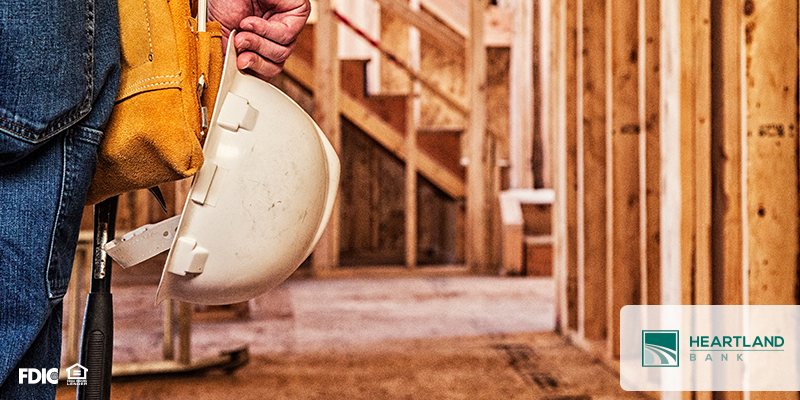
Throughout your real estate search, you’ve probably asked yourself the infamous question, “What would Chip and Joanna do?” With HGTV’s Fixer Upper series gaining popularity, more and more families are looking to buy inexpensive fixer uppers to fulfill their home buying dreams. Filled with projects, setbacks, and endless design potentials, these diamonds in the rough come with their own unique set of pros and cons. Luckily, Heartland Bank is here to help you discover the true cost to working through your own fixer upper.
Every home has different needs, but these are some key expenses you’ll need to plan for when purchasing a fixer upper:
- Realtor Fee: if you’re selling your current property, be prepared to fork over the 6 percent fee to have your home sold. Ideally you’re looking to sell your home for a higher dollar than you purchased it for, but this is not always the case. Be sure to have some funds in reserve just in case you have to cover the realtor fee out of your own pocket.
- Construction Costs: Typically divided into two billing arenas, you can expect to either pay one lump sum, or a calculated cost of labor, materials, and an added profit margin. Expect to pay $100-$200 per square foot of intensive renovation work.
- Materials: The more upgrades you want, the faster your price will climb. While simply getting the property up to speed is a task all its own, creating your own customized space inside will continue to add dollars and cents to your overall bill.
- Furnishings: Depending on the format of your last home, you may be upgrading your furniture in this new abode. After various searches and bargain finds, you’ll still need to tuck away and extra some extra funds to ensure you can furnish the home once it is finished.
- Landscaping: Now that the house is complete, it’s time get to work on the curb appeal – and it isn’t cheap! With an average price tag of $5,000, finishing your home with a completed landscape design can also add to the overall budget.
Altogether, purchasing a fixer upper may cost about the same as a newer home purchase after the cost of renovations. The advantage to these love-needing homes however, is their potential for customization, and creating the ideal home for you and your family. If you’re looking to repair or update your next home, consider financing through one of our structured Home Equity Lines of Credit. Our experienced mortgage lenders are here to help you every step of the way!

